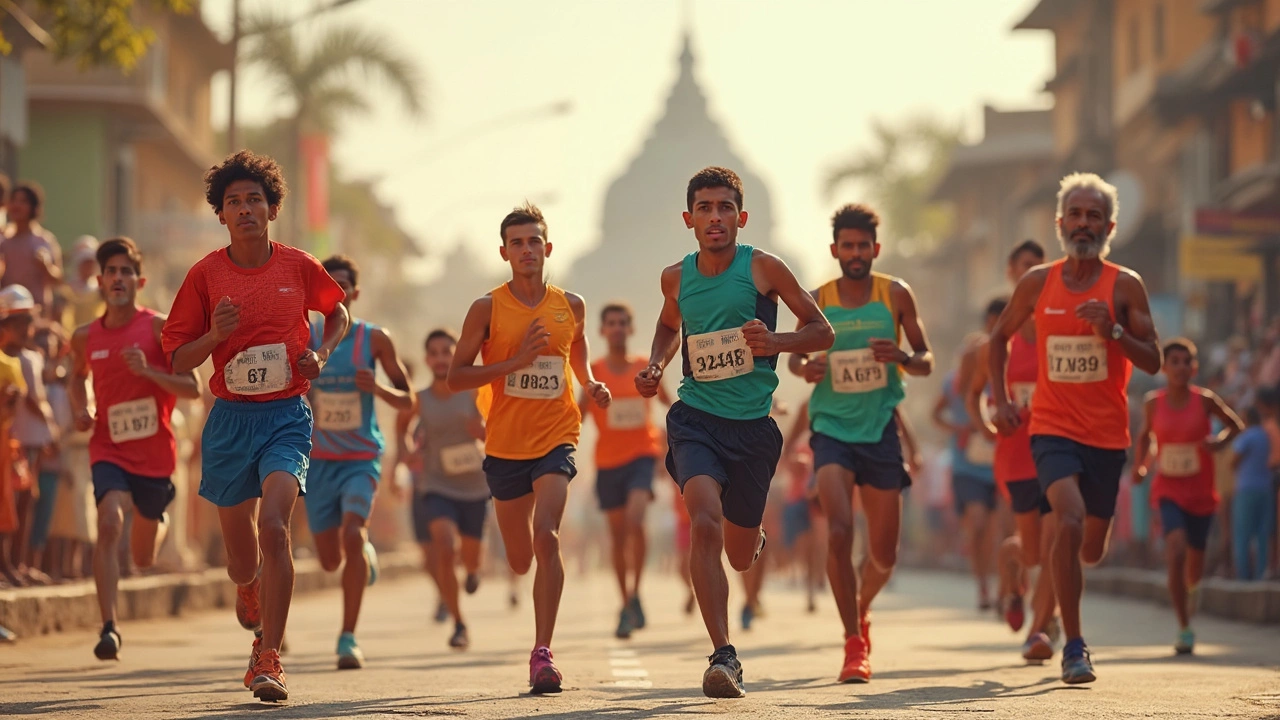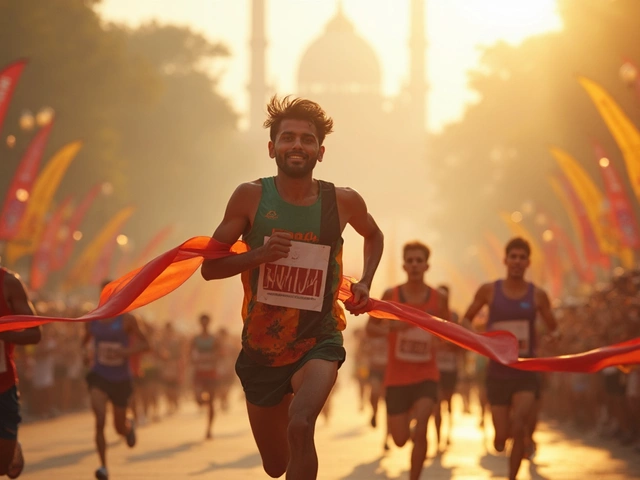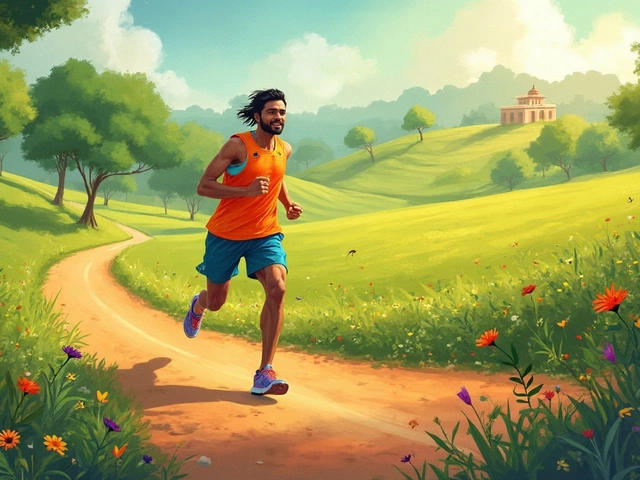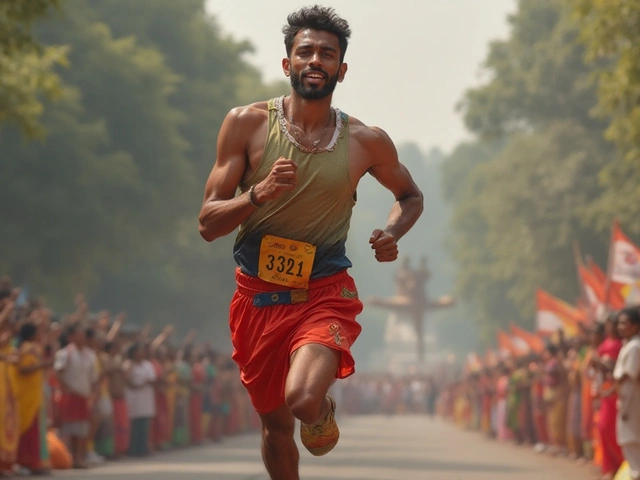Ever wondered if there's a magical age to tie those laces and hit the marathon track? You're not alone. While your body's capabilities evolve as you age, so does your approach to running. Some folks crush marathons in their twenties, riding on the wave of energy and speedy recovery. Others find their groove later in life, blending experience with strategic pacing. It's all about playing to your strengths at each stage.
Your twenties might be about chasing personal bests, bursting with energy and making the most of quick recovery times. But don't sneeze at the golden forties and fifties—seasoned runners often bring endurance and mental strength to the table, which can make a world of difference at mile twenty.
No age is a bad age to embark on the marathon journey—it's all about understanding what your body and mind bring to each run. Knowing these unique strengths can help tailor your training, ensuring the best run of your life. So, whether you're just out of college or thinking about that big birthday bucket-list goal, there's a path for you. Embrace it!
- The Golden Age for Running
- Age-Related Strengths
- Unique Challenges at Different Ages
- Training Tips for Different Age Groups
- Why It's Never Too Late
- The Role of Experience in Marathon Success
The Golden Age for Running
So, what’s the best age to kick off your marathon journey? Well, it's like asking what's the best age to fall in love—there's no single answer! But if we look at the stats, people between their late 20s and early 30s often shine in marathons. This age range seems to balance youthful energy and some much-needed life experience.
In your late 20s, your body is generally strong and resilient, making it easier to handle the rigors of marathon training. Muscle mass and cardiovascular capacity are usually at their peak, allowing for faster recovery and peak performance. Most elite marathoners hit their personal bests in this age frame. It's no coincidence that many race winners and record-setting performances come from this group.
But don't think it's all downhill once you pass 30. The early 30s offer something special. You still enjoy many physical perks while packing a bit more mental grit. Your ability to endure prolonged activity improves, which is super helpful for marathon distances. This blend of physical and mental maturity often leads to strong performances.
The idea of a best age marathon is flexible. Everyone's body and experience differ, so it's important to listen to what yours is telling you. Maybe you’re hitting your stride later, or perhaps you're an early bloomer. Either way, the key is smart training and understanding what your body can handle.
And hey, if you're past your 30s, don't stress it. Plenty of folks in their 40s and beyond hit personal records because they run smarter, not just harder. Age brings wisdom, which often translates into thoughtful pacing and deep endurance. Just remember, age is just a number—it’s all about how you feel and perform.
Age-Related Strengths
Running a marathon can mean different things depending upon your age, and every age offers its own set of advantages. Let's break this down.
In your twenties, your body is like a well-oiled machine. Your muscles recover faster, and you're generally less prone to injury. This period offers an edge for pushing limits and seeking faster times. But it also comes with the temptation to overdo it, so balance is key.
When you hit your thirties, you might notice a slight change. While you're still close to your physical peak, your priorities often shift with work and family. What's great, though, is that this age brings more maturity and often a better strategic mind while running. At this point, many find their sweet spot between endurance and speed.
Stick around, and your forties and fifties can be just as rewarding for marathon running. Here, patience pays off. Many runners in this range focus on the mental game. The experience you've gathered over the years helps a great deal in pacing and sustaining energy throughout the race. You still have a lot to offer, sometimes even improving your personal records.
Check out this quick breakdown:
| Age Group | Strengths | Considerations |
|---|---|---|
| 20s | Faster recovery, energy | Avoid overtraining, find balance |
| 30s | Physical peak, mental strategy | Time management with life commitments |
| 40s & 50s | Mental endurance, experience | Focus on recovery and injury prevention |
And hey, don't get too hung up on these age brackets. Every runner is different, and what's crucial is listening to your body and training smart. Embrace your strengths, whatever your age, and your marathon journey will be a rewarding one.
Unique Challenges at Different Ages
Running a marathon isn’t a one-size-fits-all endeavor, and each age group brings its own set of hurdles. Let's break it down to see what you might face across the years.
Twenties: Ah, the roar of youth! Your body’s a recovery machine, bouncing back quickly. But here's the catch—it's easy to go all out and burn out. Risk of injury from overzealous training is real. Proper technique and knowing when to pull back are crucial.
Thirties: You're likely juggling more responsibilities now—career, family, social commitments. Finding time to train can be the biggest challenge. You might not recover as fast as in your twenties, so integrating cross-training and recovery days is smart.
Forties: Many start feeling joint discomfort, and it's around this age that being mindful of nutrition and recovery becomes non-negotiable. Strength exercises are essential to maintain muscle mass and support those joints during training and races.
Fifties and Beyond: Here’s where experience shines. The wisdom gained from years of running can trump pure physical prowess. However, declines in bone density and muscle mass might appear, making it key to focus on strength training and a consistent training regimen.
Understanding these age-related challenges allows you to tailor your marathon training to fit your stage in life. Embrace the unique strengths of your age, and you'll find running a marathon can be just as rewarding at 55 as it is at 25, just in different ways. So, lace up and keep moving forward!
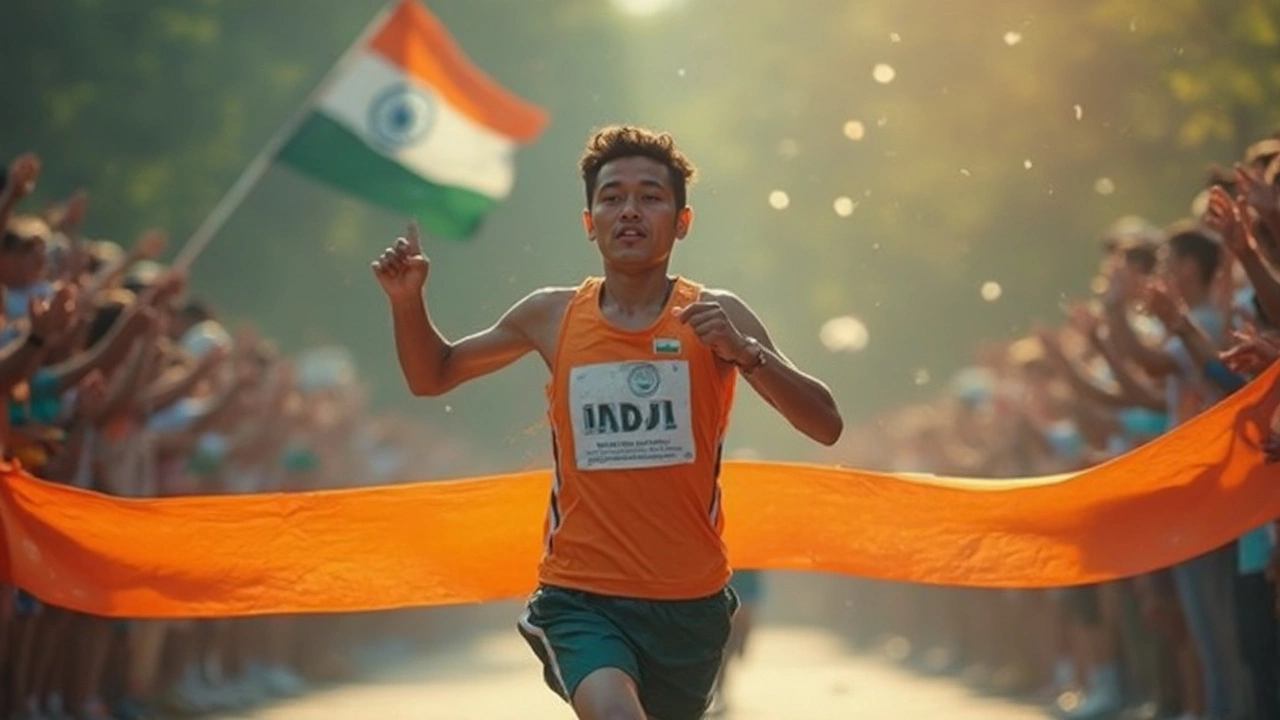
Training Tips for Different Age Groups
Whether you're a fiery youngster or a wise old soul, every age group brings something special to the marathon table. Knowing how to train for your age can make or break your race day experience. Let’s break it down.
20s: Embrace Your Energy
In your twenties, you’ve got boundless energy and faster recovery. It's the perfect time to build a strong running foundation. Focus on:
- Volume and Variety: Mix up your runs. Include sprints, long runs, and recovery jogs to keep your body guessing.
- Strength Training: Don’t skip that weight session. Building muscle strength early on will support your joints as you add to your mileage.
- Rest and Recovery: Even superheroes need downtime. Ensure you take rest days seriously to avoid burnout.
30s: Play Smart
The thirties can be your peak in balanced performance. With career and family responsibilities, it's all about efficiency now.
- Scheduled Training: Make a realistic training calendar and stick to it. Consistency is your best friend.
- Cross-Training: Swimming or cycling can be lower-risk ways to keep those muscles sharp without pounding the pavement too hard.
- Nutrition: Fuel like a pro. Balanced meals and hydration can make sure all those work stressors don’t derail your progress.
40s and 50s: Sustain and Maintain
Midlife brings a unique blend of endurance and wisdom. It’s time to refine your approach.
- Focus on Quality: You might not need to run more miles, but make the ones you do count. Intervals and tempo runs can help.
- Body Awareness: Tuning into what your body is telling you can prevent injuries. Listen to any warning signs.
- Regular Check-ins: Consider regular check-ups and flexibility workouts to keep everything in harmony.
60s and Beyond: Enjoy the Journey
If you're in your sixties or older, it’s all about enjoying the marathon experience without overdoing it.
- Pacing: Prioritize a comfortable pace. The goal is to enjoy the run, not stress out about times.
- Support System: Joining a community group can keep you motivated and offer tailored support.
- Mind and Body: Meditation and mental resilience exercises can be invaluable to maintain focus and enjoyment.
Here's a look at potential adjustments by age:
| Age Group | Focus Areas | Potential Adjustments |
|---|---|---|
| 20s | Volume and Variety | More high-intensity workouts |
| 30s | Scheduled Training | Balanced meals |
| 40s-50s | Quality Mileage | Reduce frequency, more recovery |
| 60s+ | Enjoy the Run | Priority on comfort |
Your body has its own rhythm at each stage of life. Embrace where you are, and take advantage of your strengths. Whatever your age, the path to marathon training is about making adjustments that fit your lifestyle, not forcing your life to fit the training.
Why It's Never Too Late
Thinking about running a marathon but worried you've missed the boat? Relax—it's never too late to join the ranks of marathoners! Many people think of marathon running as a young person's game, but there are plenty of reasons why starting later can actually work in your favor.
First off, let's talk experience. By the time you've lived a bit, you likely know how to set goals, manage time, and understand your body's signals. This plays a huge part in training smart. You also might have more patience and dedication needed for long-term marathon training.
Here's a cool fact: Fauja Singh, known as the 'Turbaned Tornado', ran the Toronto Waterfront Marathon at 100 years old! He proves that age is just a number when it comes to conquering the marathon. In 2022, a survey showed that the average age of marathon finishers was around 39, proving it's not just young folks lining up at the start line.
In terms of health benefits, running remains a fantastic way to keep active, whatever your age. Training for a marathon can boost cardiovascular health, improve joint function, and increase mental well-being. It's a full-package deal for a healthier lifestyle! Just check with a doctor to make sure you're good to go.
- Start with a beginner's plan and gradually build your distance.
- Focus on nutrition and hydration; your body needs quality fuel, especially when you're older.
- Listen to your body and rest when needed to avoid injuries.
So, wherever you are in your life, if you've got the itch to run, lace up those running shoes and kick-start your training. A marathon might just be the adventure you need!
The Role of Experience in Marathon Success
Ever notice how seasoned marathoners always seem to have a trick or two up their sleeves? That's the power of experience. When it comes to running, particularly the grueling 42.2 kilometers of a marathon, experience becomes your secret weapon.
One major plus of being an experienced runner is that you already know what works for your body. From selecting the right footwear to knowing your hydration needs, these are things you don't find out overnight. Experience helps you fine-tune your pre-race routines and even informs your nutritional choices—those little things that can make or break your race day.
Beyond the physical prep, experienced runners often have mental strategies to handle tough moments during a race. Many have tackled that infamous 'wall'—when your body feels like it's shutting down—and know the strategies to push through. They plan how they'll pace themselves, knowing when to conserve energy and when to go all out.
Veteran marathoners also tend to have a better understanding of how to manage long-term training schedules. They balance between hard runs and recovery, avoiding burnout, which seasoned runners know is vital for keeping injury-free. They’ve likely learned the hard way that going all-out every single run is not sustainable.
When looking at races, experience even extends to choosing which marathon events to run. Seasoned runners know what kind of courses play to their strengths, from flat, fast courses to those with challenging hills that test pure endurance.
Experience is backed by research too. Studies often show that marathon performance peaks between ages 30 and 50, partially because these runners balance physical prowess with the strategic nous built over years.
| Age Group | Average Marathon Time |
|---|---|
| 20-29 | 3:54:37 |
| 30-39 | 3:44:21 |
| 40-49 | 3:50:48 |
In short, the more marathons you run, the more you learn, and this wisdom is invaluable. It not only makes running marathons a more enjoyable experience but can also help you snag that elusive personal best. So, whether you're deep into your running journey or just beginning, remember that each run adds a layer to your marathon expertise.
